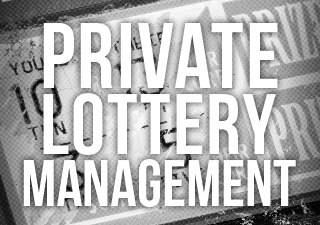Media
Union Attacks Won’t Improve Lottery
 AFSCME Council 13, the union representing state lottery employees, released its “Alternatives” to a lottery private management agreement. However, their document doesn’t represent a serious counter-proposal that would help Pennsylvania’s growing senior population, but simply an attack on private lottery operator Camelot and the Department of Revenue. Instead of offering policies with credible data, much of the document is pocked with juvenile jabs, like questioning the guaranteed $34 billion profit Camelot has promised the state:
AFSCME Council 13, the union representing state lottery employees, released its “Alternatives” to a lottery private management agreement. However, their document doesn’t represent a serious counter-proposal that would help Pennsylvania’s growing senior population, but simply an attack on private lottery operator Camelot and the Department of Revenue. Instead of offering policies with credible data, much of the document is pocked with juvenile jabs, like questioning the guaranteed $34 billion profit Camelot has promised the state:
We are not surprised the residents of this Commonwealth, major newspapers, elected officials, and your employees are skeptical that these “Annual Profit Commitments” are any more real than Gus, the Second Most Famous Groundhog in Pennsylvania.
AFSCME goes on to criticize the new contract, which guarantees profit growth significantly above historic growth, with more rhetoric, dismissing that as “comparing apples to screwdrivers.”
Moreover, AFSCME’s critique includes misleading information. For example, they claim:
[S]ince the addition of the Millionaire Raffle 2005-06 [sic], the Lottery’s net operating revenues after the cost of sales are deducted have not dropped below approximately $1 billion.
Lottery profits were less than $1 billion per year prior to 2012—hence the use of the word “approximately”— with years of growth and years of decline. In fact, Lottery profits declined in three consecutive years, from 2007 to 2009.
While Camelot’s bid includes precise annual profit commitments for the next 20 years, AFSCME’s attack piece offers no such guarantee, but claims they can provide more, because government can always do better than for-profit companies:
[B]ecause there is no profit-taking through public operation, AFSCME members will always be able to produce more net revenue than your lone bidder. It’s not about politics; it’s about arithmetic. When all the numbers are crunched, at the end of the day, Camelot’s numbers come up short.
Citizens with commonsense, experienced in inefficiency within government programs will find this laughable. In their bid, Camelot would only share in the profit after the guaranteed $34 promised to the state, which creates an incentive for Camelot to be more efficient. That is more funding for seniors programs than current Lottery forecasts, and it is guaranteed by the PMA.
Finally, AFSCME’s proposed recommendations include “Development of an Annual Business Plan (including a marketing strategy) by the Pennsylvania Lottery.” That is to say, they don’t offer their own business plan, but expect the Lottery to come up with a plan. Of course, that is exactly what the contract with Camelot would do, while also guaranteeing results. Oh, and without the bureaucracy and unfunded pension, too.